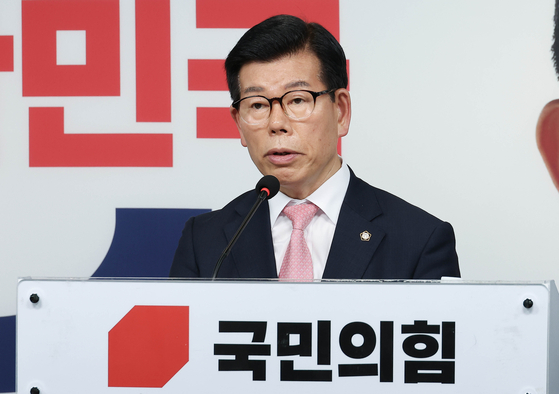Listen to the article
South Korean Court Convicts Lawyer for False Allegations Against President Lee
A Seoul High Court has overturned a lower court ruling and convicted lawyer Jang Yeong-ha for spreading false information about President Lee Jae Myung during the 2022 presidential election. The court handed down a one-year prison sentence, suspended for two years, finding Jang guilty of violating the Public Official Election Act.
The case stems from allegations Jang made in October 2021, just months before the hotly contested presidential election. During a press conference, Jang claimed that then-candidate Lee had accepted 2 billion won (approximately $1.4 million) in bribes while serving as the mayor of Seongnam. According to Jang, the bribes were exchanged for business favors.
“Jang held a press conference based solely on photos unrelated to the issue and statements from Park Cheol-min — a known member of the International Mafia gang — without securing concrete or objective evidence,” the court stated in its ruling.
The court was particularly critical of Jang’s professional background and his failure to verify information before making such serious accusations. “Even though the defendant is a legal professional, he abandoned his duty and spread falsehoods using provocative images,” the judges noted.
The timing of Jang’s allegations has drawn scrutiny. His claims came during a critical period in the election campaign and were later amplified when former People Power Party lawmaker Kim Yong-pan presented the same allegations during a parliamentary audit of Gyeonggi Province, where Lee had served as governor.
However, subsequent investigations revealed that the photos of cash bundles presented as evidence had been fabricated. The images had originally been posted by Park on social media for business promotion purposes and had no connection to the alleged bribery.
Despite this revelation, Jang proceeded with his press conference just two days after the fabrication became apparent, without conducting proper verification of the claims. This sequence of events heavily influenced the court’s decision.
“Considering the timing of the disclosure and other factors, the court finds that the defendant was at least aware the claims could be false when he made them public,” the ruling stated. “The lower court ruling of not guilty was based on a misunderstanding of facts and a misapplication of the law.”
The case highlights the contentious nature of South Korean political campaigns and the potential impact of misinformation on electoral outcomes. The court specifically mentioned the narrow margin in the presidential race, noting that “given that Lee narrowly lost the election, the impact on the presidential race cannot be dismissed.”
The Democratic Party, Lee’s political party, had filed a criminal complaint against Jang after the fabricated nature of the evidence became clear. They argued that the false allegations constituted a violation of election laws designed to prevent the spread of misinformation during campaigns.
In January, a lower court had acquitted Jang, ruling there was insufficient evidence to prove he knowingly spread false information. The High Court’s decision to overturn that ruling represents a significant development in how South Korean courts are addressing election-related misinformation cases.
Jang’s relationship with Park Cheol-min, the gang member whose testimony formed the basis of the allegations, has also come under scrutiny. Jang had served as legal counsel for Park, who is known to be a member of the criminal organization identified as the “International Mafia gang.”
The case underscores growing concerns about the intersection of legal professionals, political campaigns, and potential criminal elements in South Korean politics. It also demonstrates the judiciary’s willingness to hold individuals accountable for spreading unverified allegations that could influence electoral outcomes.
The ruling sends a strong message about the responsibilities of legal professionals when making public allegations, particularly during sensitive political periods such as presidential campaigns.
Fact Checker
Verify the accuracy of this article using The Disinformation Commission analysis and real-time sources.




12 Comments
This case serves as a reminder that the spread of misinformation can have real consequences, not just for the individuals involved but for the democratic process as a whole.
Agreed. Safeguarding the integrity of elections should be a paramount concern for all citizens, and this ruling underscores the importance of accountability in the face of false claims.
It’s encouraging to see the court taking a strong stance against the use of misinformation for political gain. This decision could have important implications for future elections and the role of the legal profession.
Absolutely. Upholding the rule of law and ensuring a fair and transparent electoral process is crucial for the health of any democracy. This ruling sets an important precedent.
It’s concerning to see a lawyer abusing their position of trust to spread politically motivated falsehoods. This ruling sends a clear message that such behavior will not be tolerated.
Absolutely. Fact-checking and journalistic integrity are vital, especially during elections. This case is a cautionary tale for those who would seek to mislead the public for political gain.
This ruling is an important step in combating the growing problem of misinformation in politics. Upholding the rule of law and the integrity of the electoral process should be a top priority.
I agree. Misinformation can have far-reaching consequences, so it’s critical that those who spread it are held accountable. This decision sets a precedent that should deter similar behavior in the future.
While I’m glad the court took this matter seriously, I wonder what broader implications this case might have for the legal profession and its role in maintaining public trust.
That’s a good point. Lawyers have a duty to the public, and this ruling highlights the need for the legal community to uphold the highest standards of ethics and integrity.
This case highlights the importance of verifying information before making serious public accusations, especially during election campaigns. Spreading unsubstantiated claims can undermine the democratic process.
Agreed. Lawyers have a responsibility to uphold the integrity of the legal system and should be held accountable for knowingly disseminating misinformation.